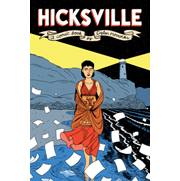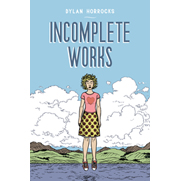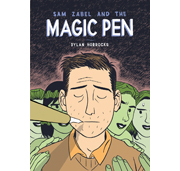
(I apologise for interrupting with something completely unrelated to comics, but I want to post this somewhere, and here seems the easiest place. Normal ‘Magic Pen’ posting will resume tomorrow!)
As the war on Wikileaks heats up to fever pitch, this has become an issue far greater than the nuanced specifics of the Cablegate leak and whether you think its release was flawed or its contents trivial.
Think back to the Pentagon Papers and ask yourself: would you like to have cooperated with Nixon’s attempts to suppress, persecute and harass Daniel Ellsberg, Neil Sheehan and the Washington Post? Or would you have taken a stand on principle?
The nature of the two leaks are, of course, very different; but make no mistake: this is that kind of once-in-a-generation moral challenge. As attempts to crush Wikileaks move beyond the reasonable and into the extralegal and Orwellian, this is becoming a profound moral crisis for free speech, journalism and democracy.
Frankly, I no longer care whether you find Julian Assange annoying and arrogant or how you feel about Gaddafi’s buxom nurse. The issues at stake now are far more significant and the outcome of this crisis will shape the environment for journalism, whistleblowers, the internet, free speech and democracy for a long time to come. In that, at least, there is a clear and striking parallel with the events surrounding the release of the Pentagon Papers and its aftermath.
So please: think about how your actions today might look in twenty years time, and please – for the sake of whatever ideals and principles first led you to consider journalism – take this crisis SERIOUSLY!
(And while I’m on the subject, please remember that Julian Assange is not the only person being persecuted over this. Remember Pfc Bradley Manning? If anyone’s the Daniel Ellsberg in all this, it’s Manning, who is currently in military prison, being kept in isolation and facing over 50 years imprisonment – all for trying to do the right thing. A few more stories about him wouldn’t go amiss…)

















I completely agree. Finally, one politician has begun to say the same thing:
Ron Paul, who said (it’s somewhat close to a quote), “when truth is treason, the problem is with government.”
I am absolutely amazed that the politico-journalistic complex is calling for “assassination,” “arrest,” “investigation…” what’s to investigate? These supposedly “secret” pieces of information are really things we need to know. It is amazing in this century that the “powers that be” assume we (the citizens/taxpayers) have no right to know what their govt is actually doing with their money and their lives. I pointed out to another journalist that knowing the realities of the Vietnam War (I was NOT a war activist) in real time might have spared many American (and Vietnamese) lives. Perhaps our leaders would still have decided to fight, but I think not, and I think that the “light of day” is a good thing, not a bad thing.
Shame on all those who decided to persecute/prosecute Mr. Assange for his publication of documents.
Amen!
Great post Dylan! Looking forward to some comics. 🙂
5.15pm: Ramping up his rhetoric on Fox News just now, Senator Joe Lieberman, the head of the Senate’s homeland security committee, suggests that the New York Times and other news organisations using the WikiLeaks cables may also be investigated for breaking the US’s espionage laws.
Lieberman told Fox News:
To me the New York Times has committed at least an act of bad citizenship, but whether they have committed a crime is a matter of discussion for the justice department.
So it has begun.
I’m glad Wikileaks exists. I find them fascinating and, on the aggregate, beneficial, but…
There is no correlation between the Wikileaks dumps and the Pentagon Papers; the later were a top secret study commissioned by the US Government (the Defense Dept) that proved that the US Government (the Johnson Administration) was lying about the Vietnam war. Ellsberg, justly, exposed this lie.
Given the sheer volume of material stolen, there’s no possible way Bradley Manning even knew what he had, let alone whether it would support his reported anti-war position. The same can be said of how Wikileaks released the data.
This low-level data wasn’t released with any purpose other than to embarrass. That’snot “the right thing” and it’s sure as hell isn’t journalism.
Jay, I beg to differ. Manning (if he did what he’s alleged to have done) copied those files after being shocked at some of the stuff he was reading. This included the trivial stuff, but also don’t forget that the war logs released earlier contain clear evidence of war crimes that had been denied by the US military, and the diplomatic cables show further illegal activity (espionage against the UN, for example). There are many many other examples in there of the American government lying to the public.
The wars in Iraq and Afghanistan are founded on lies as egregious as those behind the war in Vietnam. For a soldier caught up in that to attempt to reveal what’s really been going on behind the scenes – puncturing the PR spin by leaking what the military and diplomatic officials have been saying to each other – I think this is an act of moral courage.
If much of the material he downloaded and gave to Wikileaks turned out to be chaff (or even, in some cases, went against his intentions), that doesn’t alter the fact that he was indeed trying to do the right thing.
Ellsberg’s leak was different in part because of the technology of the times. A major leak in the early 70s was much more difficult to carry out, and relied on a deep insider who had access to one of very few physical copies. Ellsberg had to smuggle boxes of files out (over weeks), and then photocopy them by sneaking into an office, night after night. Today, the nature of the beast has changed, and a leak like this can come from a lower-level employee who happens to have access to the network. As a result we get gigantic data dumps, from people who don’t necessarily understand the full nature of what they’ve got. There’s a downside to that, but it’s just the way it is now.
It’s worth noting that Daniel Ellsberg has spoken out many times in defense of Manning and Wikileaks. He himself repeatedly points to the parallels between his case and theirs. It’s easy for us to focus on the distinctions and to make armchair moral judgements, but whatever the merits or otherwise of the Cablegate and War Log leaks, it’s clear to me that Manning was, as I said, trying to do the right thing.
I would think that one of the primary tasks of the journalist is to search for truth. Hard to do that when so much official narrative is effectively propaganda. Entrenched power silences, then fills that silence with its own narrative. Wikileaks is a blunt instrument, but some of the details exposed are certainly sharp.
If ever there was a situation full of gray areas and not much black-and-white, this is it. Manning’s good intentions might have been to pull a Daniel Ellsberg, but the road to…where?… is paved with those.
Ellsberg was focused and specific in his revelations. Manning and Wikileaks have emptied a dump truck of stuff ranging from the irrelevant to the embarrassing to the truly dangerous – dangerous to individuals who have put themselves on the line to help the US. We can argue about whether they were helping in a just or unjust war or cause, but they were helping out of their own conviction that they were doing the right thing at great risk to themselves and their families.
If the goal was to make a statement about transparency vs. propaganda, why not sift through for the truly significant information instead of irresponsibly burying it in a mountain of simply embarrassing irrelevancies?
Ellsberg may defend Wikileaks’ right to do what they’re doing but their laziness has put people in jeopardy whom the US promised to protect. How noble is that?
I’d say that “laziness” is more to do with the kinds (or more accurately the volumes) of information we’re dealing with now, as Dylan mentioned earlier. I’d also suggest that the goal wasn’t necessarily to make a statement so much as a statement/series of statements is/are being made because of what has happened.
Dylan, I’m with you on this one like burning.
I’d say we need more people doing Wikileaks-type stuff and fewer people doing U.S. Government-type stuff.
It’s also worth pointing out again and again (because much of the reporting gets this wrong): Wikileaks has not simply dumped the cables online. They’re being released in dribs and drabs, with the cooperation of newspapers, who are going through a redaction process first to avoid endangering people. That process may not be perfect, but it’s not the lazy mass infodump being reported and reacted to, due to (ahem) lazy reporting.
I hate to say it but Wikileaks is looking a bit less cool…. http://www.veteranstoday.com/2010/12/08/gordon-duff-busted-wikileaks-working-for-israel/
German translation – not perfect, but hey, better than nothing: http://stefan.waidele.info/2010/12/09/dylon-horrocks-leaks/
Mad Mal: well, I read that piece and followed its sources and read those (also various comments and so on). There’s only one source for that allegation, which is a Syrian news site, which is quoting an unnamed source (as far as I can tell from the Google Translation). I have no idea whether that Syrian site is reliable at all (not knowing much about the Syrian online media). But on the face of it, it would take more than that to convince me that Assange is working for Israel. 😉
Stefan: thanks! The amazing multilingual power of the voluntary interweb strikes again!